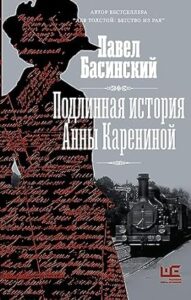 Pavel Basinsky’s Podlinnaia istoriia Anny Kareninoi won the Big Book Prize in 2021-22. Basinsky is an acclaimed literary scholar and brilliant writer. His fascinating documentary books on the life and work of Leo Tolstoy have already unleashed a new wave of public interest in the phenomenon of the “Apostle of Yasnaya Polyana.” And the latest book is no exception. The publisher writes: “Anna Karenina is probably Leo Tolstoy’s most mysterious work. Why is it still controversial? There is much we do not know about the harsh laws and paradoxical mores of Russia’s golden nineteenth century. Basinsky explores the novel through the eyes of a curious and engaged reader. The facts he gathers surprise, disturb, and explain the many peculiarities of this tragic love story. The book is illustrated with rare photographs and paintings from the archives of the Yasnaya Polyana Estate Museum and the Leo Tolstoy State Museum.” (Moscow: AST, 2022)
Pavel Basinsky’s Podlinnaia istoriia Anny Kareninoi won the Big Book Prize in 2021-22. Basinsky is an acclaimed literary scholar and brilliant writer. His fascinating documentary books on the life and work of Leo Tolstoy have already unleashed a new wave of public interest in the phenomenon of the “Apostle of Yasnaya Polyana.” And the latest book is no exception. The publisher writes: “Anna Karenina is probably Leo Tolstoy’s most mysterious work. Why is it still controversial? There is much we do not know about the harsh laws and paradoxical mores of Russia’s golden nineteenth century. Basinsky explores the novel through the eyes of a curious and engaged reader. The facts he gathers surprise, disturb, and explain the many peculiarities of this tragic love story. The book is illustrated with rare photographs and paintings from the archives of the Yasnaya Polyana Estate Museum and the Leo Tolstoy State Museum.” (Moscow: AST, 2022)
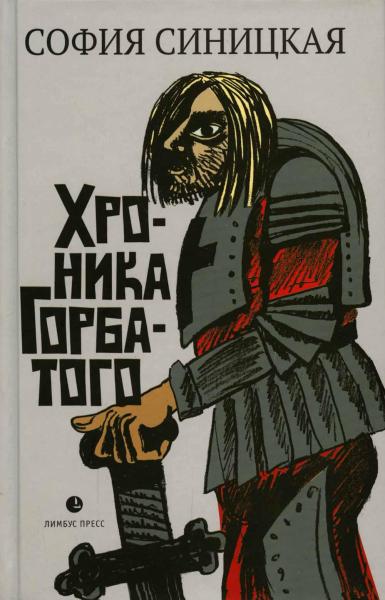 Sofia Sinitskaya’s Xроника Горбатого (The Chronicle of the Hunchback) has been called one of the best books of the past year. This slim book covers several hundred years of Vyborg’s history, from its founding by the Swedes, Slavs and local tribes to the present day. The publisher writes: “Karelians, Novgorodians, Swedes, Finns – this land has seen everyone, and everyone has left his mark on it. The author unfolds before the reader a fascinating historical canvas, a real saga, where real events naturally combine with miracles and finally intertwine into an incredible chronicle”. Sinitskaya is a singular talent; in her book real life is mixed with myths, people with ghosts and heroes of the Karelian epic. In keeping with our times, the reader learns how public myths are created, what happens when the image of a beautiful Russian girl is used for the symbolic “Suomi”. Elena Vasilieva writes: “Sinitskaya’s book is the kind of reading that will not let you down even in the most difficult times”. Moreover, it is written in such a vivid language that you believe in these events and heroes as if they were happening right before your eyes. (St. Petersburg: Limbus Press, 2022)
Sofia Sinitskaya’s Xроника Горбатого (The Chronicle of the Hunchback) has been called one of the best books of the past year. This slim book covers several hundred years of Vyborg’s history, from its founding by the Swedes, Slavs and local tribes to the present day. The publisher writes: “Karelians, Novgorodians, Swedes, Finns – this land has seen everyone, and everyone has left his mark on it. The author unfolds before the reader a fascinating historical canvas, a real saga, where real events naturally combine with miracles and finally intertwine into an incredible chronicle”. Sinitskaya is a singular talent; in her book real life is mixed with myths, people with ghosts and heroes of the Karelian epic. In keeping with our times, the reader learns how public myths are created, what happens when the image of a beautiful Russian girl is used for the symbolic “Suomi”. Elena Vasilieva writes: “Sinitskaya’s book is the kind of reading that will not let you down even in the most difficult times”. Moreover, it is written in such a vivid language that you believe in these events and heroes as if they were happening right before your eyes. (St. Petersburg: Limbus Press, 2022)
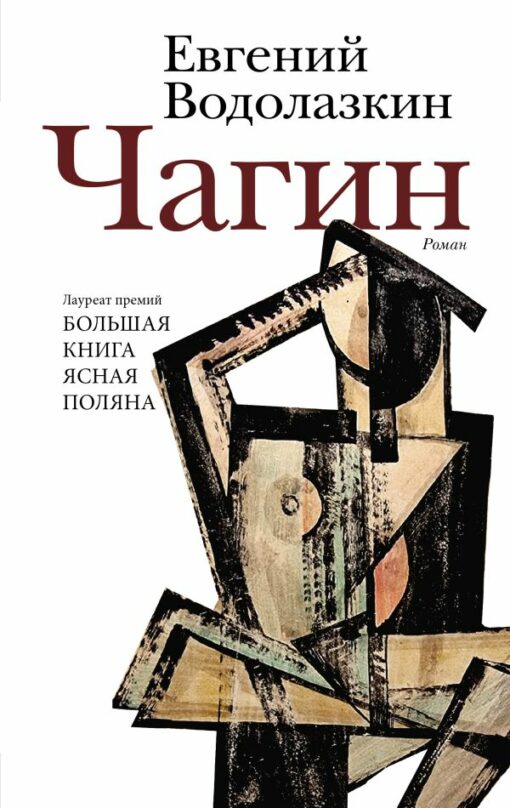 Eugeny Vodolazkin – best known for his acclaimed 2012 novel Laurus – returns in 2022 with a deeply moving story about Isidor Chagin (Chagin), a phenomenon who “can memorize a text in its complexity and keep it in his memory. “It is a “novel about memory, about time, and about a man tormented by these forces beyond his control,” the publisher emphasized. This ability becomes a severe test for the hero, as Chagin is deprived of the ability to forget. It is a tragicomic book “because memory needs forgetting, words need silence, and fiction needs reality” -2022/23 (Moscow: AST, 2022).
Eugeny Vodolazkin – best known for his acclaimed 2012 novel Laurus – returns in 2022 with a deeply moving story about Isidor Chagin (Chagin), a phenomenon who “can memorize a text in its complexity and keep it in his memory. “It is a “novel about memory, about time, and about a man tormented by these forces beyond his control,” the publisher emphasized. This ability becomes a severe test for the hero, as Chagin is deprived of the ability to forget. It is a tragicomic book “because memory needs forgetting, words need silence, and fiction needs reality” -2022/23 (Moscow: AST, 2022).
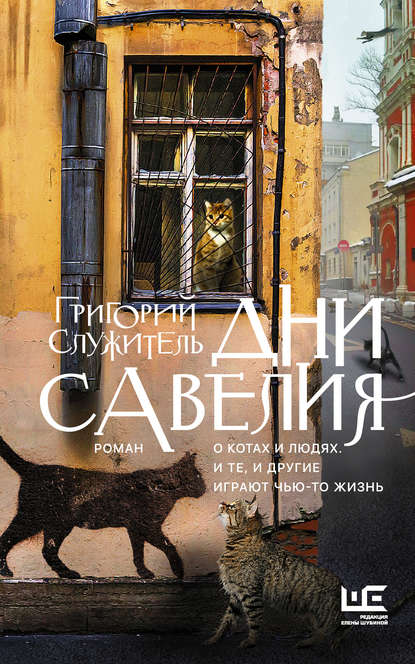 Grigory Sluzhitel‘s Дни Савелия (Savely’s Days) was published in 2018. This is his debut book, which tells the story of the life of Savely, a Moscow cat. Along the way, the reader is taken on a fascinating journey through Moscow. Savely’s life is no less interesting or dramatic than the lives of the people around him: he is fired from the Tretyakov Gallery, he meets all kinds of people, suffers and loves, and meets a beautiful young cat. This bittersweet story about a Moscow cat won the 2019 People’s Choice Award and became a literary sensation. In the preface to the novel, Evgeny Vodolazkin writes: “The Sluzhitel’s characters, whether cats or people, are real. They are lonely, they suffer, they laugh, and they love.” We might add that this is a true love story. (Moscow: AST, 2018)
Grigory Sluzhitel‘s Дни Савелия (Savely’s Days) was published in 2018. This is his debut book, which tells the story of the life of Savely, a Moscow cat. Along the way, the reader is taken on a fascinating journey through Moscow. Savely’s life is no less interesting or dramatic than the lives of the people around him: he is fired from the Tretyakov Gallery, he meets all kinds of people, suffers and loves, and meets a beautiful young cat. This bittersweet story about a Moscow cat won the 2019 People’s Choice Award and became a literary sensation. In the preface to the novel, Evgeny Vodolazkin writes: “The Sluzhitel’s characters, whether cats or people, are real. They are lonely, they suffer, they laugh, and they love.” We might add that this is a true love story. (Moscow: AST, 2018)
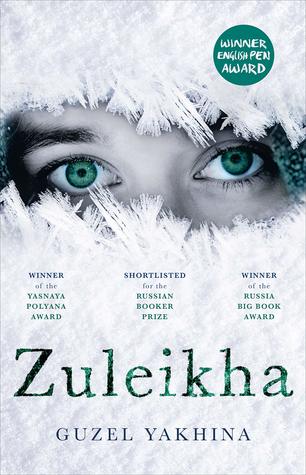 Guzel Yakhina’s Zuleikha opens her eyes (Зулейха открывает глаза) is her debut novel inspired by her grandmother’s memories. In 2015, it was awarded the Yasnaya Polyana Literary Prize and won the Big Book Award. The novel tells the story of Zuleikha, a peasant woman living in a remote Tatar village in the 1930s. Zuleikha’s husband resisted collectivization and was murdered. Zuleikha was sent to a Siberian labor camp, where she had to come to terms with her new reality. Masterfully written, the novel broadened our understanding of women’s suffering under the brutal Stalin regime. The novel has been translated into English by Lisa Hayden. A Russian TV series based on the novel was broadcast in Russia in 2020.
Guzel Yakhina’s Zuleikha opens her eyes (Зулейха открывает глаза) is her debut novel inspired by her grandmother’s memories. In 2015, it was awarded the Yasnaya Polyana Literary Prize and won the Big Book Award. The novel tells the story of Zuleikha, a peasant woman living in a remote Tatar village in the 1930s. Zuleikha’s husband resisted collectivization and was murdered. Zuleikha was sent to a Siberian labor camp, where she had to come to terms with her new reality. Masterfully written, the novel broadened our understanding of women’s suffering under the brutal Stalin regime. The novel has been translated into English by Lisa Hayden. A Russian TV series based on the novel was broadcast in Russia in 2020.
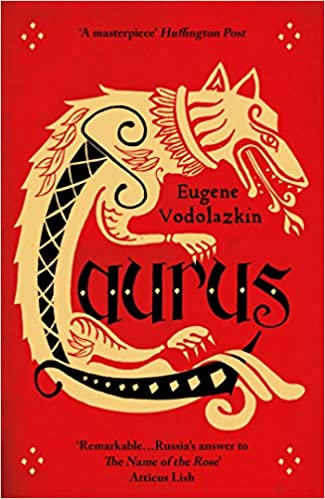 Laurus by Eugeny Vodolazkin was published in 2012 and translated into English by Lisa Hayden in 2016. This novel about medieval Russia has won two of Russia’s biggest literary prizes. Vodolazkin wrote the story of Arseny, a fictional fifteenth-century Russian folk healer, a holy fool. After failing to save the girl he loves, the young healer is overcome with grief and guilt. Leaving his village behind and taking the name Laurus, he sets out on a quest. He wanders through plague-ridden medieval Europe, traveling across lands and offering his healing powers to those in need. The Huffington Post (UK) points out: “A masterpiece by any standard…the novel flows in the spirit of the invincible Russian literary tradition of pathos and Dostoevskian depth; at other times it is a pure philological triumph…. Vodolazkin’s archaic seasoning is complemented by his sublime sense of humor. ” As noted in the publisher’s review: “Laurus is a remarkably rich novel about the eternal themes of love, loss, self-sacrifice, and faith, by one of the country’s most experimental and critically acclaimed novelists. In short, it’s a masterpiece that explains the mystery of the Russian Orthodox faith. (Oneworld Publications, 2016)
Laurus by Eugeny Vodolazkin was published in 2012 and translated into English by Lisa Hayden in 2016. This novel about medieval Russia has won two of Russia’s biggest literary prizes. Vodolazkin wrote the story of Arseny, a fictional fifteenth-century Russian folk healer, a holy fool. After failing to save the girl he loves, the young healer is overcome with grief and guilt. Leaving his village behind and taking the name Laurus, he sets out on a quest. He wanders through plague-ridden medieval Europe, traveling across lands and offering his healing powers to those in need. The Huffington Post (UK) points out: “A masterpiece by any standard…the novel flows in the spirit of the invincible Russian literary tradition of pathos and Dostoevskian depth; at other times it is a pure philological triumph…. Vodolazkin’s archaic seasoning is complemented by his sublime sense of humor. ” As noted in the publisher’s review: “Laurus is a remarkably rich novel about the eternal themes of love, loss, self-sacrifice, and faith, by one of the country’s most experimental and critically acclaimed novelists. In short, it’s a masterpiece that explains the mystery of the Russian Orthodox faith. (Oneworld Publications, 2016)
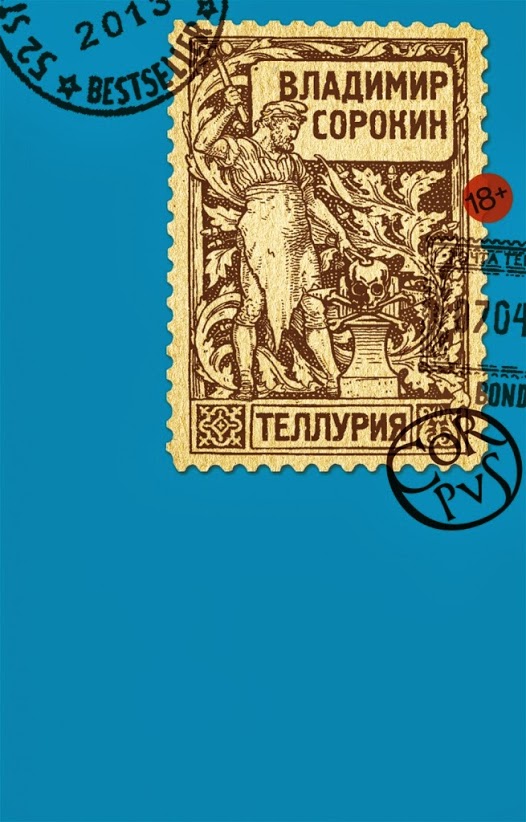 Vladimir Sorokin’s Telluria, his tenth novel, was published in 2013. In this novel he looks further into an imaginary future, beyond the time of his famous novel The Day of Oprichnik. It is a surreal fantasy about a time when Russia ceased to exist and in its place 15 separate republics emerged, such as Moscovia, Ryazan, the Ural Republic, etc. Telluria is a republic in the Altai Mountains with large reserves of tellurium, whose population speaks three languages. It is a prototype of the transformed Eurasia of the New Middle Ages imagined by Sorokin. (Moscow: AST, Corpus, 2013)
Vladimir Sorokin’s Telluria, his tenth novel, was published in 2013. In this novel he looks further into an imaginary future, beyond the time of his famous novel The Day of Oprichnik. It is a surreal fantasy about a time when Russia ceased to exist and in its place 15 separate republics emerged, such as Moscovia, Ryazan, the Ural Republic, etc. Telluria is a republic in the Altai Mountains with large reserves of tellurium, whose population speaks three languages. It is a prototype of the transformed Eurasia of the New Middle Ages imagined by Sorokin. (Moscow: AST, Corpus, 2013)
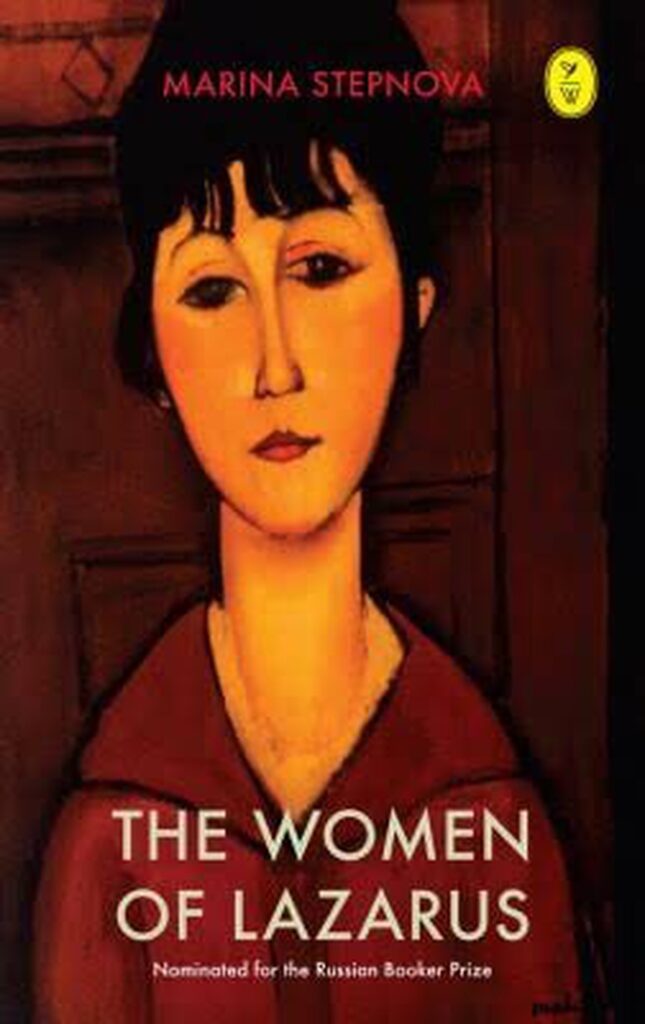 The Women of Lazarus by Marina Stepnova, translated by Lisa Hayden, is constructed as a family saga in the context of Russia’s turbulent twentieth-century history. This postmodern novel begins in the fictional town of Ensk and continues in Moscow, from the time of the Russian Revolution to the present. It consists of the stories of three generations of the family of Lazarus Lindt, a poor young orphan who arrived in Moscow at the beginning of the century. The confused young man became a famous scientist. The book tells his story through the key women in his life – his professor’s wife, his own wife, and his granddaughter. (UK: World Editions, 2015)
The Women of Lazarus by Marina Stepnova, translated by Lisa Hayden, is constructed as a family saga in the context of Russia’s turbulent twentieth-century history. This postmodern novel begins in the fictional town of Ensk and continues in Moscow, from the time of the Russian Revolution to the present. It consists of the stories of three generations of the family of Lazarus Lindt, a poor young orphan who arrived in Moscow at the beginning of the century. The confused young man became a famous scientist. The book tells his story through the key women in his life – his professor’s wife, his own wife, and his granddaughter. (UK: World Editions, 2015)
 The novel by Alexei Ivanov Zoloto bunta is devoted to the events occurring in the Urals at the end of the 18th century, four years after the defeat of the Pugachev revolt. The hero of the book, the young rafter Ostafii Perekhod must solve the mystery of the death of his father, in order to wipe away the patrimonial disgrace. (St.Peterburg: Izdatel’skaia Gruppa “Azbuka-klassika”, 2010)
The novel by Alexei Ivanov Zoloto bunta is devoted to the events occurring in the Urals at the end of the 18th century, four years after the defeat of the Pugachev revolt. The hero of the book, the young rafter Ostafii Perekhod must solve the mystery of the death of his father, in order to wipe away the patrimonial disgrace. (St.Peterburg: Izdatel’skaia Gruppa “Azbuka-klassika”, 2010)
 Pavel Basinsky’s book, Lev Tolstoi: Begstvo iz Raia, is based strictly on available archival documents and recreates Tolstoy’s life, especially his flight from Yasnaya Polyana at the age of 82. Why did he leave his wife, his family? Did he want to be with the peasants? Was the home environment so unbearable? Or was he finally fulfilling his dream of leaving home and wandering as the Buddha did in his younger years? In this book, the author carefully analyzes the relationships, circumstances, and examines all existing versions of Tolstoy’s escape. (Moscow: AST, 2010)
Pavel Basinsky’s book, Lev Tolstoi: Begstvo iz Raia, is based strictly on available archival documents and recreates Tolstoy’s life, especially his flight from Yasnaya Polyana at the age of 82. Why did he leave his wife, his family? Did he want to be with the peasants? Was the home environment so unbearable? Or was he finally fulfilling his dream of leaving home and wandering as the Buddha did in his younger years? In this book, the author carefully analyzes the relationships, circumstances, and examines all existing versions of Tolstoy’s escape. (Moscow: AST, 2010)
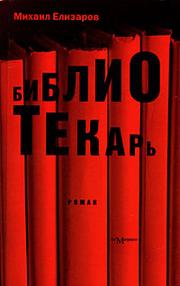 The Librarian by Mikhail Elizarov won the 2008 Russian Booker Prize. It is an extravagant study of post-Soviet grief that both completes and expands our understanding of it. The main character, Alexei, discovers that books by the obscure Soviet writer Gromov have the magical quality of changing the person who reads them. Gromov’s novels are about the bygone days of workers and collective farmers who have long since disappeared from public life, along with the country that produced them. However, the books have such an effect on their readers that they are suddenly endowed with supernatural powers. Various groups of readers organize themselves into regional armies or “Libraries” to fight for these books by any means necessary. Everything changes for Alexei when he inherits a “Book of Memory” and becomes one of the “Librarians”. The hero is drawn into a bloody war between the so-called “libraries” for the Gromov legacy. The books turn the whole reality into chaos. “Questions of Literature” concludes: “A world of myths… and a requiem for a broken country. (Moscow: Ad Marginem, 2010)
The Librarian by Mikhail Elizarov won the 2008 Russian Booker Prize. It is an extravagant study of post-Soviet grief that both completes and expands our understanding of it. The main character, Alexei, discovers that books by the obscure Soviet writer Gromov have the magical quality of changing the person who reads them. Gromov’s novels are about the bygone days of workers and collective farmers who have long since disappeared from public life, along with the country that produced them. However, the books have such an effect on their readers that they are suddenly endowed with supernatural powers. Various groups of readers organize themselves into regional armies or “Libraries” to fight for these books by any means necessary. Everything changes for Alexei when he inherits a “Book of Memory” and becomes one of the “Librarians”. The hero is drawn into a bloody war between the so-called “libraries” for the Gromov legacy. The books turn the whole reality into chaos. “Questions of Literature” concludes: “A world of myths… and a requiem for a broken country. (Moscow: Ad Marginem, 2010)
 Expertly compiled and annotated by Slava Yastremski, Poems and Elegies is an anthology of poetry by Olga Sedakova, skillfully translated from the original Russian. Sedakova survived years of silencing and censorship during the Soviet regime, and her work looks to the early avant-garde movements of pre-revolutionary Russia, far removed from the commercialism and capitalism that saturate contemporary Russian life. A trilogy of introductory essays by distinguished writers prepares the reader to experience Sedakova’s profound and sometimes tragic insights. (Lewisburg: Bucknell University Press, 2003)
Expertly compiled and annotated by Slava Yastremski, Poems and Elegies is an anthology of poetry by Olga Sedakova, skillfully translated from the original Russian. Sedakova survived years of silencing and censorship during the Soviet regime, and her work looks to the early avant-garde movements of pre-revolutionary Russia, far removed from the commercialism and capitalism that saturate contemporary Russian life. A trilogy of introductory essays by distinguished writers prepares the reader to experience Sedakova’s profound and sometimes tragic insights. (Lewisburg: Bucknell University Press, 2003)
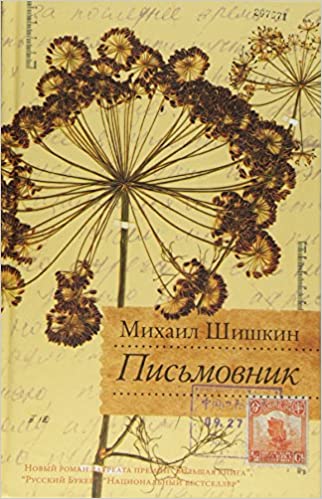 The only author to have won all three of Russia’s major literary prizes, Mikhail Shishkin is one of Russia’s most acclaimed contemporary writers for Western readers. His Pis’movnik (The Light and the Dark), translated by Andrew Bromfield, takes the form of a novel in letters between two lovers, Volodya and Sasha. However, time and space do not coincide. While Sasha seems to live in contemporary Russia, Volodya writes from a distant war, and the reader understands that his battalion was sent to China to help suppress the Boxer Rebellion in Beijing in 1900. He is probably no longer alive. Volodya quotes Shakespeare and says, “Time will be in joint again when we meet again.” It is an example of postmodern prose, and as such is a reflective reading with an emphasis on the literary craft. Pismovnik was translated into several languages immediately after its publication (first published in Russian by AST, 2010; English translation, 2014).
The only author to have won all three of Russia’s major literary prizes, Mikhail Shishkin is one of Russia’s most acclaimed contemporary writers for Western readers. His Pis’movnik (The Light and the Dark), translated by Andrew Bromfield, takes the form of a novel in letters between two lovers, Volodya and Sasha. However, time and space do not coincide. While Sasha seems to live in contemporary Russia, Volodya writes from a distant war, and the reader understands that his battalion was sent to China to help suppress the Boxer Rebellion in Beijing in 1900. He is probably no longer alive. Volodya quotes Shakespeare and says, “Time will be in joint again when we meet again.” It is an example of postmodern prose, and as such is a reflective reading with an emphasis on the literary craft. Pismovnik was translated into several languages immediately after its publication (first published in Russian by AST, 2010; English translation, 2014).
 2017 by Olga Slavnikova, won the 2006 Russian Booker Prize. According to the publisher: “This is an attempt to create a satirical picture of the future direction of Russia. In 2017, in Russia – exactly 100 years after the revolution – poets and writers are obsolete, class differences are painfully sharp, and ghosts interfere in people’s lives from their home high up in the mythical Riphean Mountains.” The book was translated into English in 2010. We might add that the merits of this remarkable book are not diminished by Marian Schwartz’s sloppy translation. (New York: Overlook; London: Duckworth, 2010)
2017 by Olga Slavnikova, won the 2006 Russian Booker Prize. According to the publisher: “This is an attempt to create a satirical picture of the future direction of Russia. In 2017, in Russia – exactly 100 years after the revolution – poets and writers are obsolete, class differences are painfully sharp, and ghosts interfere in people’s lives from their home high up in the mythical Riphean Mountains.” The book was translated into English in 2010. We might add that the merits of this remarkable book are not diminished by Marian Schwartz’s sloppy translation. (New York: Overlook; London: Duckworth, 2010)
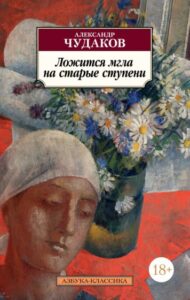 Ложится мгла на старые ступени (Darkness Falls on the Ancient Stair) by Alexander Chudakov won the Booker of the Decade (posthumously) in 2011. With hypnotic precision, this sweeping historical and philosophical novel by the eminent Russian philologist Alexander Chudakov recreates the past culture of the deportees of the mid-20th century who were forced to live and survive on the border of Siberia and northern Kazakhstan. The novel was recognized by the Russian Booker as the best Russian novel of the first decade of the new century. Alexander Chudakov wrote a book that many literary scholars and readers considered to be autobiographical, but in fact it was a work of fiction. The Good Reads’ review emphasizes: “This “novel-idyll” (a genre defined by the author himself) is a depiction of “idyllic” life against the background of national catastrophe – or Soviet history, if you will. The book tells the story of an extended family of Savvins-Stremoukhovs – representatives of Russia’s pre-revolutionary intelligentsia who, faced with the threat of Bolshevik purges and the Gulag, chose self-imposed exile in the small fictional town of Chebachinsk, lost among the picturesque lakes and forests of northern Kazakhstan.”(Moscow: OLMA-Press, 2001)
Ложится мгла на старые ступени (Darkness Falls on the Ancient Stair) by Alexander Chudakov won the Booker of the Decade (posthumously) in 2011. With hypnotic precision, this sweeping historical and philosophical novel by the eminent Russian philologist Alexander Chudakov recreates the past culture of the deportees of the mid-20th century who were forced to live and survive on the border of Siberia and northern Kazakhstan. The novel was recognized by the Russian Booker as the best Russian novel of the first decade of the new century. Alexander Chudakov wrote a book that many literary scholars and readers considered to be autobiographical, but in fact it was a work of fiction. The Good Reads’ review emphasizes: “This “novel-idyll” (a genre defined by the author himself) is a depiction of “idyllic” life against the background of national catastrophe – or Soviet history, if you will. The book tells the story of an extended family of Savvins-Stremoukhovs – representatives of Russia’s pre-revolutionary intelligentsia who, faced with the threat of Bolshevik purges and the Gulag, chose self-imposed exile in the small fictional town of Chebachinsk, lost among the picturesque lakes and forests of northern Kazakhstan.”(Moscow: OLMA-Press, 2001)
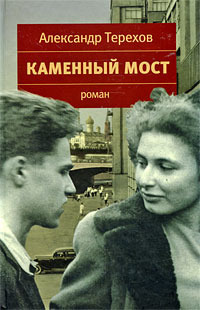 Каменный мост (The Stone Bridge) by Alexander Terekhov is an investigation into the tragic events of June 1943 in the famous House on the Embankment ( Дом на набережной) in Moscow. Located across the river from the Kremlin, it is forever associated with the Stalin era. It was completed in 1931 as a government building – a residence for the Soviet elite. This huge house on the embankment has seen many mysterious dramas. One of them is the story of love and tragedy of two teenagers. In June 1943, the son of one of Stalin’s commissars killed Ambassador Umansky’s daughter out of jealousy. But was it really so? The Stone Bridge is also a novel confession about the events in Stalin’s Russia. (Moscow: AST, 2009)
Каменный мост (The Stone Bridge) by Alexander Terekhov is an investigation into the tragic events of June 1943 in the famous House on the Embankment ( Дом на набережной) in Moscow. Located across the river from the Kremlin, it is forever associated with the Stalin era. It was completed in 1931 as a government building – a residence for the Soviet elite. This huge house on the embankment has seen many mysterious dramas. One of them is the story of love and tragedy of two teenagers. In June 1943, the son of one of Stalin’s commissars killed Ambassador Umansky’s daughter out of jealousy. But was it really so? The Stone Bridge is also a novel confession about the events in Stalin’s Russia. (Moscow: AST, 2009)
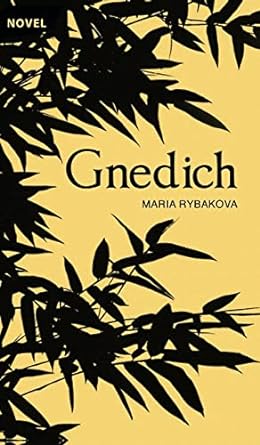 Gnedich is a novel in verse by Maria Rybakova. It is a fictionalized biography of the Russian poet Nikolai Gnedich, the famous translator of the Iliad into Russian. The novel is written in free verse, called songs, continuing the tradition of Homer. The structure of the text, the appearance of numerous 19th-century characters, great friendship and love, and associations with Homeric times made the novel-in-verse a fascinating work. Gnedich was translated into English by Elena Dimov and published by Glagoslav Publication in 2015. (UK, London: Glagoslav Publications, 2015)
Gnedich is a novel in verse by Maria Rybakova. It is a fictionalized biography of the Russian poet Nikolai Gnedich, the famous translator of the Iliad into Russian. The novel is written in free verse, called songs, continuing the tradition of Homer. The structure of the text, the appearance of numerous 19th-century characters, great friendship and love, and associations with Homeric times made the novel-in-verse a fascinating work. Gnedich was translated into English by Elena Dimov and published by Glagoslav Publication in 2015. (UK, London: Glagoslav Publications, 2015)
